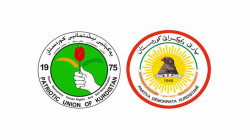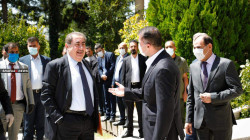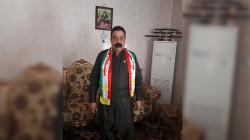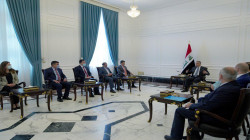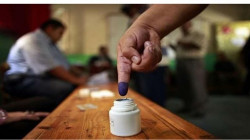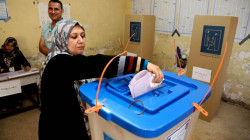P.U.K's moment of truth: will the polls vindicate the party's popularity?
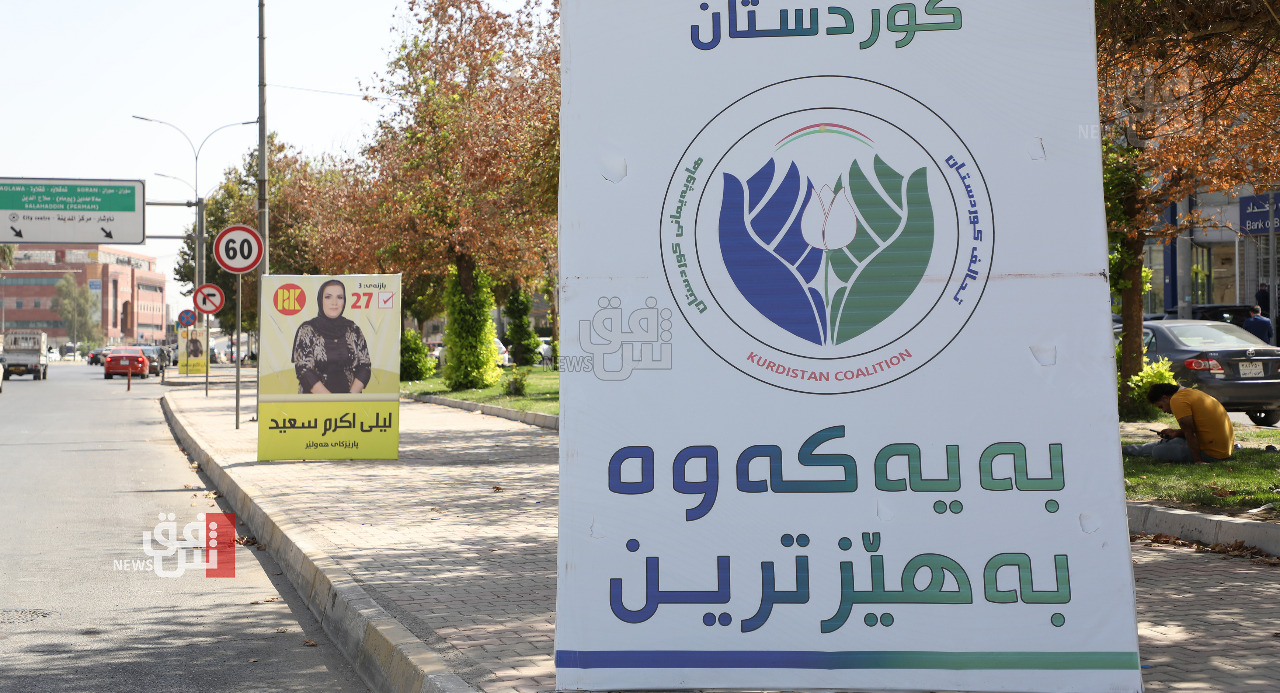
With the polls open next month, it is four full years since the party's historic founder Jalal Talabani passed in late 2017, and the emotional momentum that may have poured into the party's candidates months later in the 2018 electoral process is no longer repeatable, especially after the party's recent political stability shifts.
The electoral alliance between the P.U.K. and the Gorran Movement in May came amid internal political tension that later hit the supreme leadership of the P.U.K. with the dismissal of the party's joint president, Lahur Sheikh Jangi, due to corruption cases and legal irregularities, and then a judicial dispute with the other joint president Bafel Talabani.
However, prediction in an election process that is experiencing strong competition, such as in about two weeks, seems an uneasy gamble, especially since the rival is the Kurdistan Democratic Party (K.D.P.), the most prominent political force in the electoral arena with a new mechanism that requires a lot of considerable accuracies, hoping to win more seats than in the 2018 elections (26 seats).
It is a striking paradox that the P.U.K. is now allying with the Gorran Movement after competing with the Patriotic Union of Kurdistan and gnawed through its supporters in its supposed stronghold in al-Sulaymaniyah in July 2009. Therefore, this electoral-political position is very sensitive for the P.U.K., which now has to find out whether the October 10 ballot boxes will keep it as a strong player on the scene, which is an uneasy bet, so, perhaps for that, the party has gone towards allying with its old opponents.
The October elections, in this sense, according to observers, are a real test for the P.U.K. to show whether it will be able to rise again, even with the help of new allies, or whether it will decline popularly.
However, party candidate Suzan Mansour said that the Kurdistan Alliance's great efforts to unite visions and objectives for the success of the upcoming elections would inevitably contribute to the alliance's desired success, "Great efforts are being made by our list and other allied lists to get more seats per the new electoral law, which is in the interest of the candidate because the vote goes directly for the candidate who participates through his constituency, not the party. For example, my constituency includes more than one area within a geographical boundary with wide extensions, including Khanaqin, Qara Tapa, Jalwala, and Sadiyah, as well as some of the disputed areas within the governorate under Article 140."
Regarding future alliances, Mansour said, "As the Kurdistan Alliance list, we wanted to ally with other Kurdish lists, but unfortunately, they did not have the same desire."
"Some other lists have concluded agreements with well-known figures to participate in the elections to consolidate their own lists, i.e., blocking the contestants. However, this has not discouraged us, and a new strategy has been adopted to ensure that the votes we receive are not wasted," Mansour pointed.
She also said that the Kurdistan Alliance's strategy was based on an alliance with the Kurdish House lists to form a strong alliance to pave the way for stronger alliances in Baghdad that would have an impact on the political decision in Iraq's next parliament, "We are with the strongest to achieve the government program and we have no reservations about it."
On the next PM, Mansour stated, "The selection of the Iraqi prime minister is defined by the major powers influencing the entire political scene, while regarding the nomination of a presidential candidate, the Kurdish parties will inevitably determine the identity of the new president."
"Internal conflicts have affected the entire electoral file, as some are seeking to create tension in conflicted areas by nominating candidates who have not achieved any significant results in the past, nor would they in the future, thereby confusing voters, as well as candidates seeking to serve their areas, particularly the insecure ones," Mansour added.
She indicated, "One of the most important objectives we hope to achieve is to re-coordinate between the Peshmerga and security forces to control the security of the conflicted areas, including Khanaqin."
"The map of the distribution of seats to be won by the Kurdistan Alliance, taking into account that the Alliance is focusing on Kirkuk and al-Sulaymaniyah, i.e., they will get two seats in Erbil, one seat in Duhok, six to eight seats in al-Sulaymaniyah, and a seat in Halabja and its surroundings. In Kirkuk, the candidates of the Kurdistan Alliance will win three to six seats. However, the Alliance does not have candidates in the opposition Islamic list areas, in line with an unannounced agreement between the two parties, which obliges them not to run in each other's areas, i.e., the Garmyan areas, Halabja center, and Raperin are out of the electoral map," sources told Shafaq News agency.
"The rivalry between the two main Kurdish parties ultimately remains governed by the rules of the political and parliamentary game, in the sense that it will not lead to a clear separation between them, especially in Baghdad. However, the two sides may agree after the elections to form a single bloc or parliamentary alliance. Also, the Kurdish side, specifically the Patriotic Union of Kurdistan, retains the presidency of the Iraqi republic," the sources added.
The sources also said the Kurds have "deep understandings" with the Sadrist movement over the nomination of the PM, most of whom agreed to rename al-Kadhimi for the next government.
Hoshyar Omar, head of the diplomatic relations department of the Gorran Movement, said in an interview with Shafaq News agency that his list would participate in the upcoming elections with seven candidates, including six new technocrats and a former member of the regional parliament, within the Kurdistan Alliance, with the aim of "uniting the Kurdish house in Baghdad".
Omar said that the movement's candidates were divided into seven constituencies, in al-Sulaymaniyah, Erbil, and Kirkuk, to achieve as many seats as possible and thus, form the largest Kurdish bloc in Iraq's next parliament.
However, Omar expressed fear that voters would not participate because some often promote attempts to falsify or buy votes through political money or the power of a weapon.
"We hope that our candidates will win the highest votes in their constituencies to achieve a comfortable majority that supports government performance and contributes to the benefit of all," he said, adding, "We hope to start a new chapter with all the political parties to establish a new political core for a true nation-building and closer relations between the regional and central governments away from conflict."
Regarding the possibility of extending a second term for Prime Minister Mustafa al-Kadhimi, Omar confirmed, "We do not mind such a thing because al-Kadhimi led the country amid countless challenges and implemented his pledge to hold parliamentary elections in October. We believe that he succeeded in doing so despite the difficulties. He also has the street's acceptance because he has national visions that are not partisan nor sectarian."
"The nomination of the Republic's president this time may be from the Kurdistan Alliance, specifically from the Patriotic Union of Kurdistan," he concluded.
